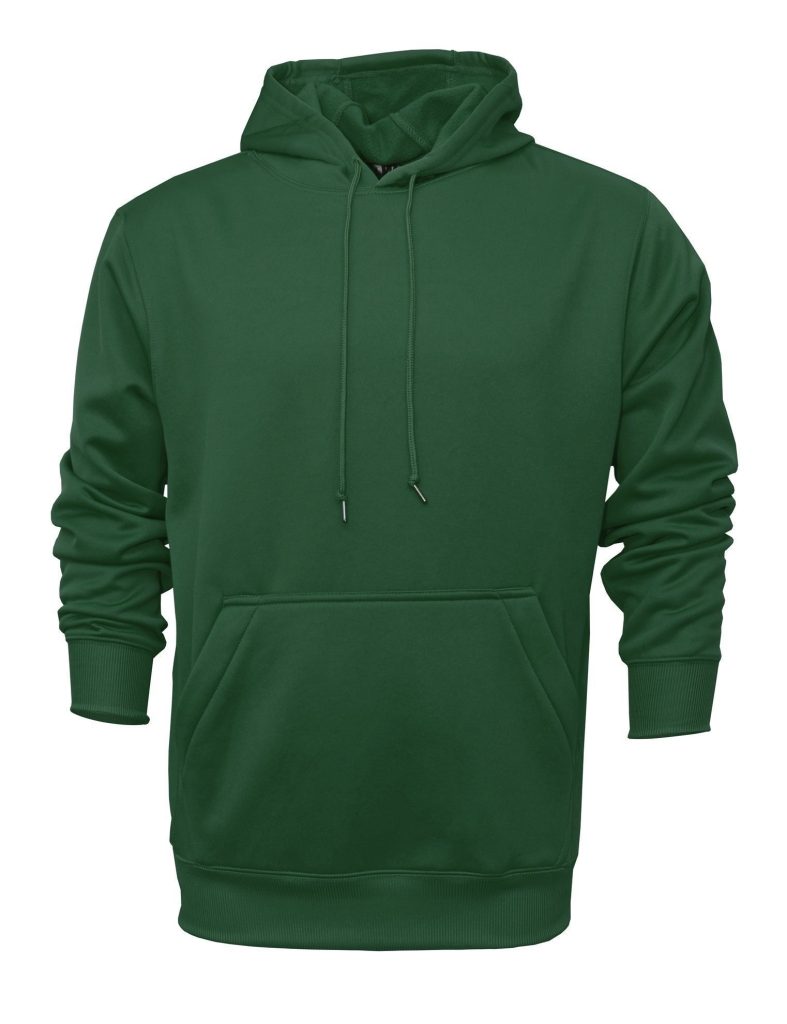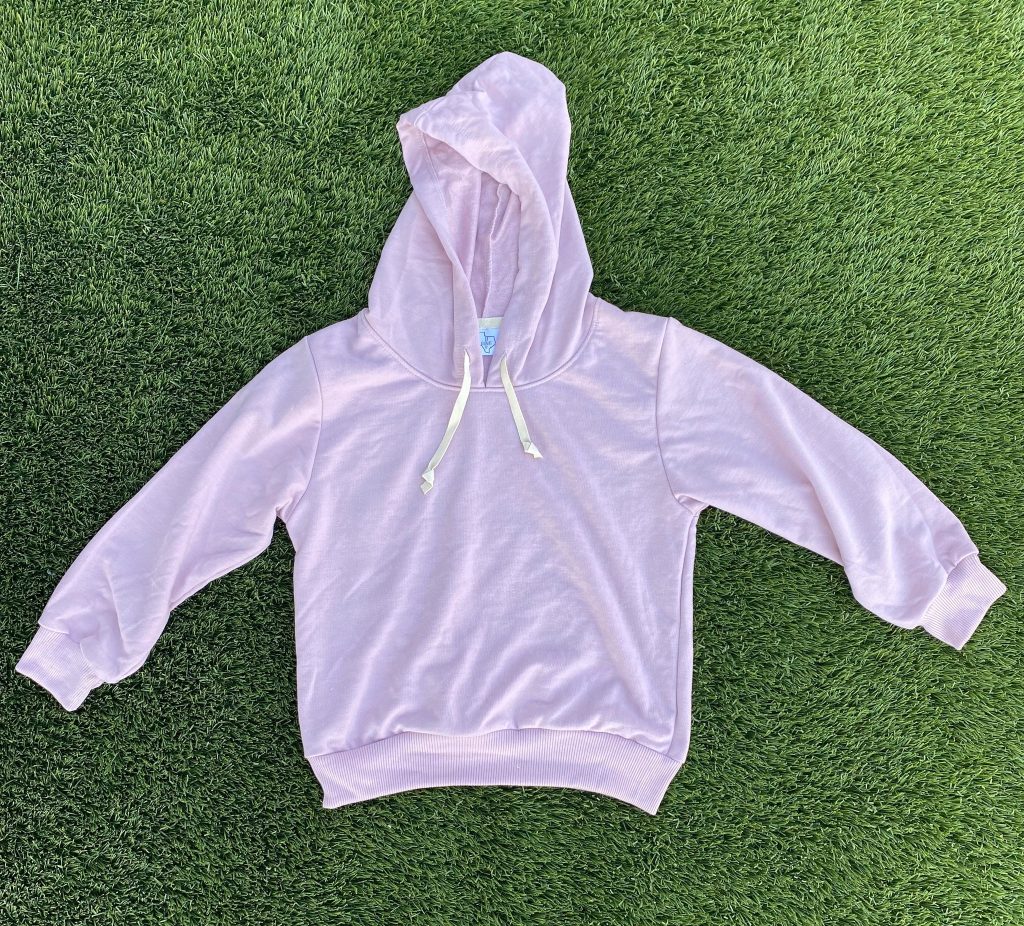Introduction
Polyester hoodies have become ubiquitous in today’s fashion landscape, representing not only a style statement but also a reflection of shifting consumer preferences towards comfort, versatility, and affordability. However, their widespread adoption also raises important questions about their environmental impact, sustainability practices within the fashion industry, and evolving consumer attitudes towards responsible consumption.

Fashion and Polyester Hoodies:
Polyester hoodies have emerged as a staple in both streetwear and athleisure fashion, prized for their durability, moisture-wicking properties, and ability to retain shape and color over time. Their lightweight and breathable nature make them ideal for layering or wearing during physical activities, while their wide range of colors and designs cater to diverse style preferences. From classic zip-up hoodies to oversized pullovers, polyester has become synonymous with comfort and versatility in the world of fashion.
Polyester hoodies have transcended their utilitarian origins to become a fashion staple embraced by diverse demographics. From urban streetwear to high-fashion runways, polyester hoodies exude a sense of casual chic that resonates with modern sensibilities. Their versatility, durability, and affordability make them an indispensable wardrobe staple for fashion enthusiasts seeking comfort without compromising style.
Sustainability Concerns:
Despite their popularity, polyester hoodies are not without controversy, particularly when it comes to their environmental impact. Polyester is a synthetic fiber derived from petroleum, making it non-biodegradable and contributing to plastic pollution when not disposed of properly. Additionally, the production of polyester fabrics involves significant energy consumption and emissions of greenhouse gases, further exacerbating climate change. As consumers become more aware of these environmental concerns, there is growing pressure on fashion brands to adopt more sustainable practices in their manufacturing processes.
Despite their popularity, polyester hoodies carry a significant environmental burden. As a synthetic fiber derived from petrochemicals, polyester production contributes to carbon emissions, resource depletion, and plastic pollution. Moreover, the proliferation of microplastics from polyester fibers poses a threat to marine ecosystems and human health, underscoring the urgent need for sustainable alternatives.

Consumer Trends and Preferences:
Consumer attitudes towards polyester hoodies are also evolving in tandem with broader shifts towards sustainable and ethical consumption. Increasingly, shoppers are prioritizing brands that demonstrate a commitment to environmental stewardship, ethical labor practices, and transparency in their supply chains. This shift is driven by a desire for products that align with personal values and contribute to positive social and environmental outcomes. As a result, fashion brands that invest in sustainable materials, ethical production methods, and transparent business practices are gaining favor among conscious consumers seeking to make informed purchasing decisions.
Shifts in consumer preferences are driving demand for ethically produced and environmentally friendly apparel, including polyester hoodies. Conscious consumers prioritize transparency, ethical sourcing, and sustainable manufacturing practices when making purchasing decisions, influencing brands to adopt more responsible approaches to fashion production. Social media and digital platforms amplify consumer voices, facilitating dialogue and accountability within the fashion industry and fostering a culture of conscious consumption.
The Role of Education and Awareness:
Education and awareness play a crucial role in shaping consumer perceptions and behaviors towards polyester hoodies and sustainable fashion more broadly. By raising awareness about the environmental impact of polyester production and promoting alternative materials such as recycled polyester, fashion brands, influencers, and advocacy groups can empower consumers to make more sustainable choices in their wardrobe selections. Additionally, initiatives such as clothing recycling programs and textile waste reduction campaigns can help minimize the environmental footprint of polyester hoodies and promote a more circular approach to fashion consumption.
Education plays a crucial role in raising awareness about the environmental and social impacts of fashion consumption. By promoting sustainable fashion literacy and advocating for industry-wide reform, stakeholders can empower consumers to make informed choices and drive demand for sustainable alternatives to polyester hoodies. Collaborative initiatives between brands, policymakers, and civil society organizations are essential to effecting systemic change and advancing sustainability goals within the fashion industry.

The Rise of Sustainable Polyester:
In response to these sustainability challenges, some fashion brands are turning to recycled polyester, also known as rPET, as a more eco-friendly alternative. rPET is made from recycled plastic bottles and other post-consumer waste, reducing the need for virgin petroleum and diverting plastic waste from landfills and oceans. By incorporating recycled polyester into their hoodie designs, brands can reduce their carbon footprint and support the circular economy, where materials are reused and recycled rather than discarded after use.
In response to sustainability imperatives, fashion brands are increasingly embracing eco-friendly materials and production practices. Recycled polyester, sourced from post-consumer plastic waste, offers a viable alternative to traditional polyester, reducing reliance on virgin resources and diverting plastic from landfills and oceans. Additionally, innovations in biodegradable and plant-based fibers present opportunities to minimize the environmental impact of polyester hoodies while meeting consumer demand for sustainable fashion.
From educational campaigns to policy initiatives, concerted efforts are underway to promote sustainable fashion practices and catalyze industry-wide transformation. Through collective action and collaboration, stakeholders can catalyze a paradigm shift towards a more sustainable and equitable fashion ecosystem.

Conclusion:
Polyester hoodies have become emblematic of contemporary fashion, offering style, comfort, and versatility to consumers around the world. However, their widespread use raises important questions about sustainability, environmental responsibility, and the future of fashion. By embracing recycled polyester and adopting more sustainable practices throughout their supply chains, fashion brands can mitigate the environmental impact of polyester hoodies and contribute to a more sustainable and equitable fashion industry. Similarly, by educating consumers about the environmental consequences of their purchasing decisions and promoting alternatives to traditional polyester fabrics, we can collectively work towards a more sustainable future for fashion.
Polyester hoodies epitomize the complexities of fashion in the 21st century, straddling the intersection of style, sustainability, and consumer consciousness. While their popularity endures, so too does the imperative to address their environmental footprint and promote more responsible fashion practices. By embracing sustainable materials, transparent supply chains, and consumer education, stakeholders can catalyze a paradigm shift towards a more sustainable and equitable fashion ecosystem, ensuring that polyester hoodies remain a symbol of fashion-forward thinking and conscientious consumption for generations to come.

